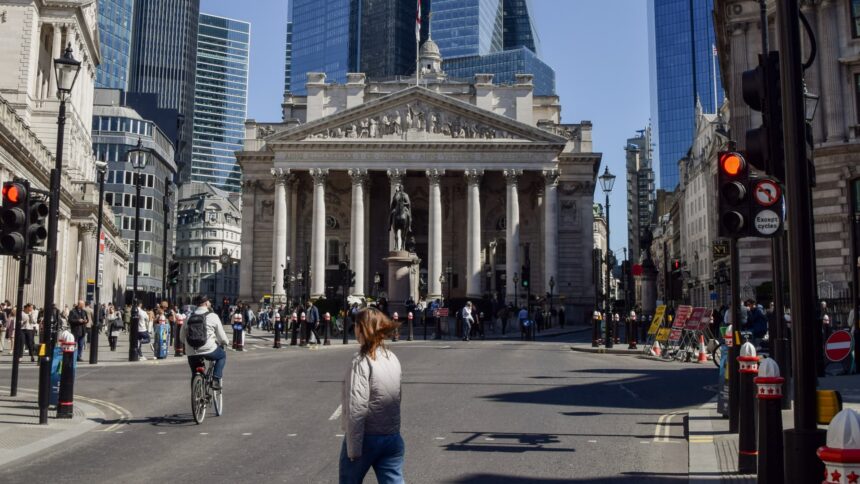The Bank of England’s Monetary Policy Committee (MPC) has chosen to maintain interest rates at 4%, amidst ongoing concerns over persistent inflation and an uncertain economic outlook. This decision, reached with a 7-2 vote, saw two members advocating for a 25 basis point reduction. The decision to hold rates steady comes after the central bank’s previous rate cut in August.
In a statement, the BOE emphasized its commitment to countering any emerging inflationary pressures, with a target of returning inflation to 2% over the medium term. Recent observations indicate that while underlying disinflation continues, concerns linger regarding a potential rise in wages and prices that could add upward pressure to inflation.
Following the announcement, the British pound held steady at around $1.3638 against the dollar. The BOE reiterated the need for a cautious and gradual approach in further unwinding monetary policy, highlighting its vigilance regarding inflation trends.
The decision to keep rates unchanged coincided with a report indicating that U.K. inflation remains stagnant at 3.8% as of August. The BOE is wary of the implications of this static rate, with a recognition that temporary inflation rises could influence wage and price settings. Although wage growth is currently elevated, it has shown signs of slowing, which could lessen inflationary demands as the year progresses.
The MPC also considered recent growth data, which indicated zero growth in July, raising alarms about a potential economic slowdown. Coupled with the cooling jobs market, these factors may give rise to further discussions about rate cuts in the near future.
In addition to interest rate considerations, the BOE announced a slowdown in its quantitative tightening efforts, reducing the amount of U.K. government bonds it offloads from £100 billion to £70 billion over the next year. This process not only tightens monetary policy but also shifts the responsibility of bond purchases to private investors, affecting liquidity in the economy.
In light of the challenging economic landscape, significant political scrutiny surrounds the BOE’s asset sale program, which has faced estimates of considerable losses amounting to £104.2 billion from the Office for Budget Responsibility. This scrutiny comes alongside anticipation for the government’s upcoming Autumn Budget, where Finance Minister Rachel Reeves is expected to propose tax increases aimed at addressing a significant budget shortfall.
Economic experts are divided on the BOE’s path forward. Some argue that the central bank is in a challenging position, as any easing of rates could inadvertently fuel further inflation, while persistently high rates may stifle economic recovery. Clouding the outlook is the impending Autumn Budget announcement, which will likely influence monetary policy directions.
Economists suggest that before the BOE contemplates further easing, a clear downward trend in inflation would be necessary. Inflation data for August does provide some relief, correcting previous unexpected rises, but many experts believe that a peak might still be on the horizon. The prevailing sentiment is cautious, with indications that while market speculation leans toward potential rate cuts next year, there remains skepticism about the feasibility of such moves.







